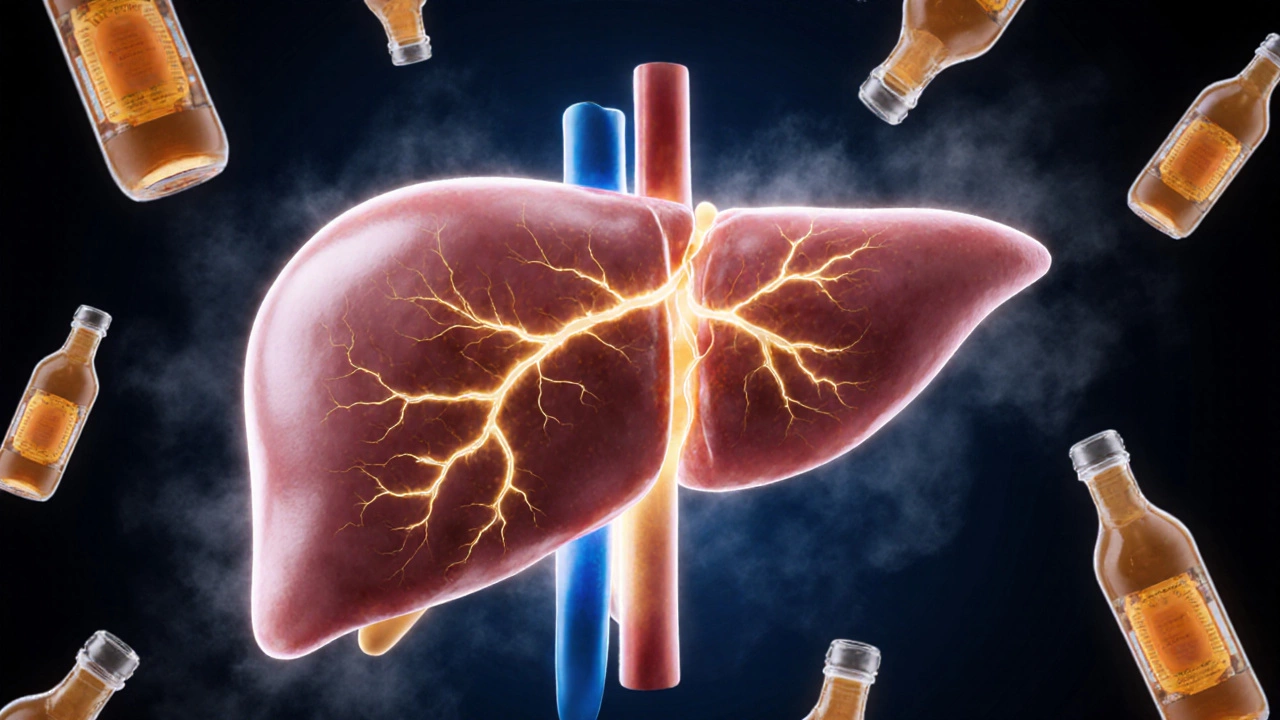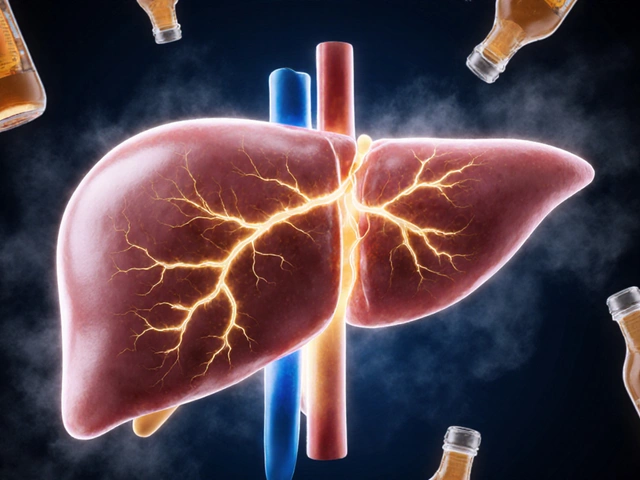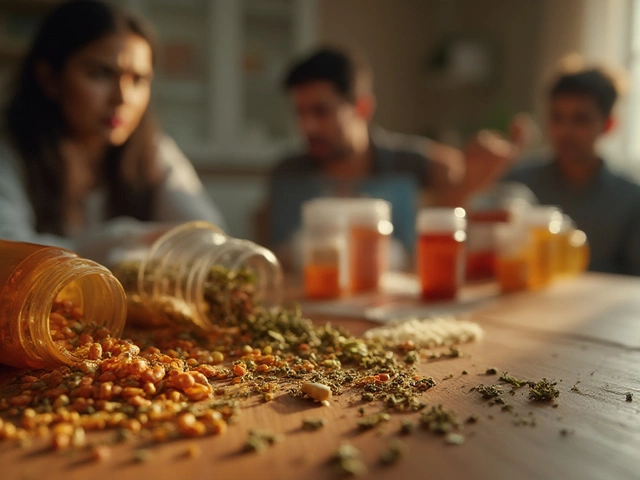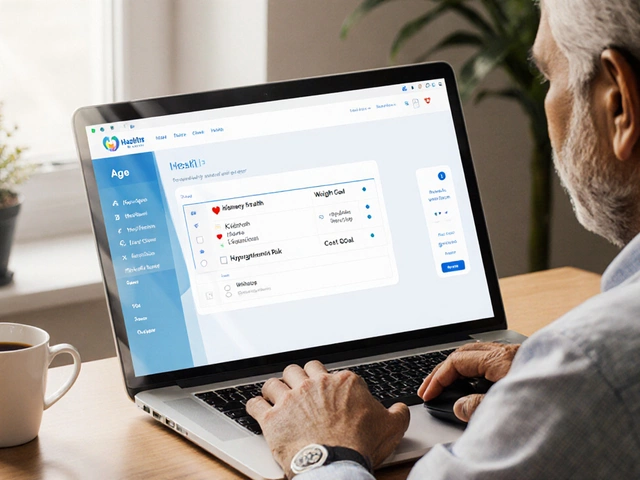Liver Health Assessment Tool
Liver Health Assessment
This tool assesses your liver health risk based on lifestyle factors. Unlike myths about apple cider vinegar, real liver health comes from proven lifestyle changes. The National Institutes of Health confirms there's no scientific evidence that ACV cleans or detoxifies your liver.
There's no scientific evidence that apple cider vinegar cleans or detoxifies your liver. The National Institutes of Health doesn't list ACV as a treatment for any liver condition. Human studies have not shown ACV improves liver enzymes or reverses fatty liver disease. While it may help with blood sugar control, it does not target liver fat directly.
For a healthy liver, focus on proven methods: limiting alcohol, reducing sugar intake, eating fiber, staying hydrated, and maintaining a healthy weight. These are the only evidence-based ways to support your liver's natural function.
People have been drinking apple cider vinegar for centuries - some say it cures everything from acne to arthritis. Lately, the buzz has centered on one bold claim: apple cider vinegar can clean out your liver. If you’ve scrolled through social media or watched a wellness influencer pour a shot of ACV into water at sunrise, you’ve probably heard this before. But does it actually work? Or is it just another trend wrapped in a glass bottle?
What does "cleaning out your liver" even mean?
The idea of a "liver detox" sounds powerful, but it’s not a medical term. Your liver doesn’t get "dirty" like a clogged sink. It’s one of your body’s most efficient organs, constantly filtering toxins, breaking down alcohol, processing medications, and balancing blood sugar. It doesn’t need a special juice, pill, or vinegar to "flush" itself. In fact, if your liver is healthy, it’s already doing its job perfectly.
When people talk about "cleaning" the liver, they usually mean they want to improve how well it works - maybe because they feel tired, bloated, or sluggish. These symptoms are rarely caused by a "toxic" liver. More often, they come from poor sleep, stress, too much sugar, or not drinking enough water. Blaming your liver and reaching for ACV misses the real culprits.
What is apple cider vinegar, really?
Apple cider vinegar is made by crushing apples, squeezing out the juice, and letting it ferment. First, yeast turns the sugar into alcohol. Then, bacteria turn that alcohol into acetic acid - the main active ingredient. Good quality ACV has a cloudy appearance because it still contains the "mother," a mix of proteins, enzymes, and friendly bacteria. This isn’t a magic potion. It’s just fermented apple juice with about 5-6% acetic acid.
Studies have shown acetic acid can help lower blood sugar after meals. One 2004 study in Diabetes Care found that people with type 2 diabetes who drank two tablespoons of ACV before bed had better fasting blood sugar the next morning. Another small 2018 trial showed ACV improved insulin sensitivity. But none of these studies looked at liver function.
Does apple cider vinegar help the liver?
There’s no direct evidence that ACV cleans, detoxifies, or repairs the liver in humans. Animal studies have shown some promise. In rats with liver damage caused by alcohol or chemicals, ACV reduced inflammation and lowered fat buildup. But rats aren’t people. Their metabolism, liver size, and how they process toxins are very different.
Human studies? None. Not one published, peer-reviewed trial has shown apple cider vinegar improves liver enzymes (like ALT or AST), reduces fatty liver, or reverses cirrhosis. The National Institutes of Health (NIH) doesn’t list ACV as a treatment for any liver condition. Neither does the American Liver Foundation.
What we do know: ACV is low in calories and might help you eat less by making you feel fuller. If you’re using it to cut back on sugary drinks or snacks, that could indirectly help your liver. Excess sugar - especially fructose - is a major cause of non-alcoholic fatty liver disease (NAFLD). Reducing sugar intake? That’s the real liver support.
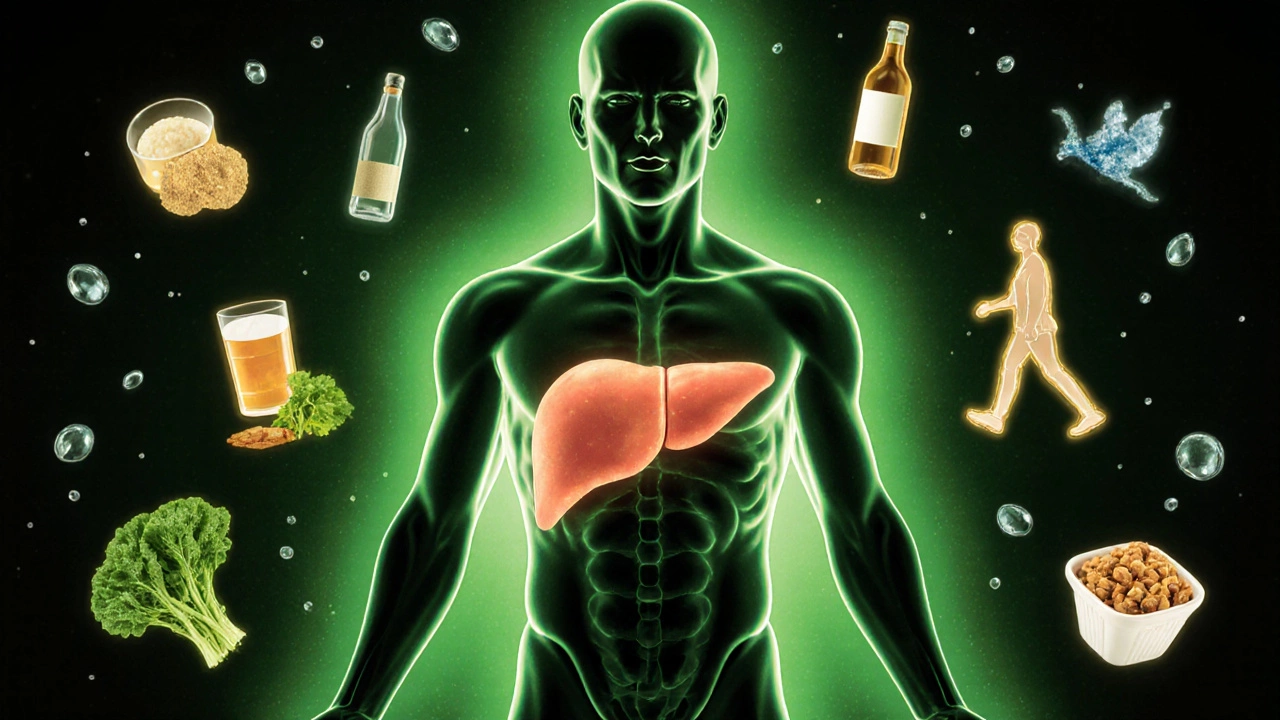
What actually helps your liver?
If you want to support your liver, forget the vinegar bottle. Focus on these proven steps:
- Limit alcohol. Even moderate drinking over time can cause fat buildup and inflammation.
- Cut back on sugar. Soda, candy, pastries - these are the biggest drivers of fatty liver in modern diets.
- Eat more fiber. Vegetables, beans, oats, and whole grains help your body process fats and toxins naturally.
- Stay hydrated. Water helps your liver flush out waste products.
- Maintain a healthy weight. Losing just 5-10% of body weight can significantly reduce liver fat in people with NAFLD.
- Avoid unproven supplements. Many "liver cleanse" products contain herbs like milk thistle or dandelion root. Some may be harmless, but others can harm your liver, especially if you’re on medication.
There’s a reason doctors don’t prescribe ACV for liver disease. Because it doesn’t work for that. But they do prescribe diet, exercise, and quitting alcohol - because those do.
Can apple cider vinegar hurt your liver?
For most people, drinking diluted ACV in small amounts is safe. But it’s not harmless. The acidity can erode tooth enamel, irritate your throat, and upset your stomach. Long-term use might lower potassium levels or interact with diuretics or insulin.
There’s one scary case report from 2019 in the Journal of Gastroenterology. A woman with chronic liver disease drank large amounts of ACV daily, believing it would help her. Over time, her liver enzymes got worse. Doctors found no other cause - and stopped her ACV use. Her numbers improved after she quit. It wasn’t proof ACV damaged her liver, but it was a warning sign: if your liver is already struggling, don’t experiment with untested remedies.

Why does the myth persist?
People want simple fixes. Liver problems develop slowly over years. Weight gain, poor diet, stress - these aren’t easy to fix. But drinking a spoonful of vinegar? That feels like action. It’s satisfying. It’s visible. You can see the bottle, taste the sourness, and tell yourself you’re doing something.
Social media thrives on quick fixes. Influencers don’t get paid to say, "Eat more broccoli and sleep better." But they do get paid to sell bottles of ACV labeled "Liver Detox Superfood." The science doesn’t matter as much as the feeling of control.
It’s not that ACV is bad. It’s fine as a salad dressing or a flavor boost. But calling it a liver cleanser? That’s misleading. And dangerous if it makes people ignore real medical advice.
What should you do instead?
If you’re worried about your liver - maybe you’re tired all the time, have dark circles under your eyes, or your doctor mentioned elevated liver enzymes - don’t reach for vinegar. Go to a doctor. Get blood tests. Ask about NAFLD or other conditions.
If you still want to try ACV, do it right:
- Dilute one tablespoon in a large glass of water.
- Drink it before meals, not on an empty stomach.
- Use a straw to protect your teeth.
- Rinse your mouth with water afterward.
- Stop if you get heartburn, nausea, or stomach pain.
And remember: no supplement replaces a healthy diet, regular movement, or enough sleep. Your liver doesn’t need cleaning. It needs care.
Can apple cider vinegar reverse fatty liver disease?
No, there is no scientific evidence that apple cider vinegar can reverse fatty liver disease. The only proven ways to improve or reverse non-alcoholic fatty liver disease (NAFLD) are weight loss (5-10% of body weight), cutting out added sugars and refined carbs, increasing physical activity, and avoiding alcohol. ACV may help slightly with blood sugar control, which can be helpful, but it does not target liver fat directly.
Is it safe to drink apple cider vinegar every day?
For most healthy people, drinking one to two tablespoons of diluted ACV daily is safe. But long-term use can damage tooth enamel, irritate the throat, and lower potassium levels. People with diabetes on insulin, those taking diuretics, or anyone with stomach ulcers should talk to a doctor first. Never drink it undiluted - it’s too acidic.
Does apple cider vinegar help with digestion or bloating?
Some people report less bloating after drinking ACV, but this isn’t proven. The acetic acid may slightly increase stomach acid, which could help break down food in people with low acid levels. But if you have acid reflux, IBS, or gastritis, ACV can make symptoms worse. It’s not a reliable digestive aid.
Are there better herbal supplements for liver health?
Milk thistle (silymarin) is the most studied herb for liver support. Some studies show it may reduce inflammation and protect liver cells, especially in people with hepatitis or alcohol-related damage. But even milk thistle isn’t a cure. It’s not a replacement for lifestyle changes. Other herbs like dandelion root or turmeric have weak or conflicting evidence. Always check with your doctor before taking any supplement - especially if you have liver disease or take medications.
How long does it take for the liver to heal?
The liver is one of the few organs that can regenerate. If you stop drinking alcohol and reduce sugar intake, you can see improvement in liver fat and enzyme levels in as little as 2-4 weeks. More serious damage, like fibrosis, takes months or years to improve - and sometimes can’t be fully reversed. The key is consistency, not quick fixes. There’s no shortcut.
Final thought: Your liver doesn’t need a cleanse - it needs you
You don’t need to buy a bottle of apple cider vinegar to protect your liver. You need to eat real food. Move your body. Sleep well. Drink water. Skip the soda. Cut back on snacks that come in plastic bags. These aren’t glamorous. They’re not viral. But they work - every single time.
ACV might taste good in a salad. But it won’t fix what sugar, alcohol, and stress have done. If you care about your liver, stop looking for a magic ingredient. Start looking at your plate - and your habits. That’s the real detox.
